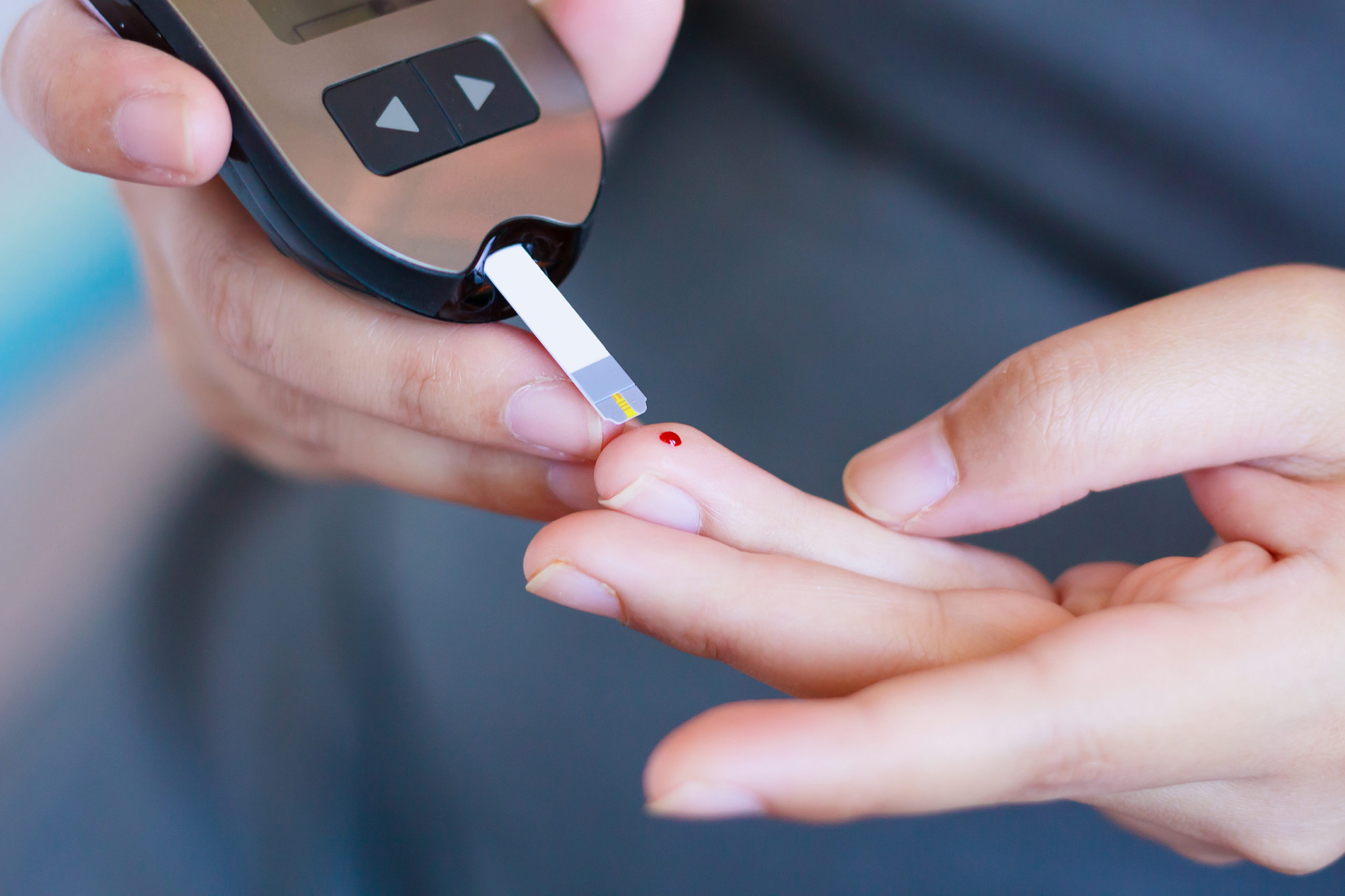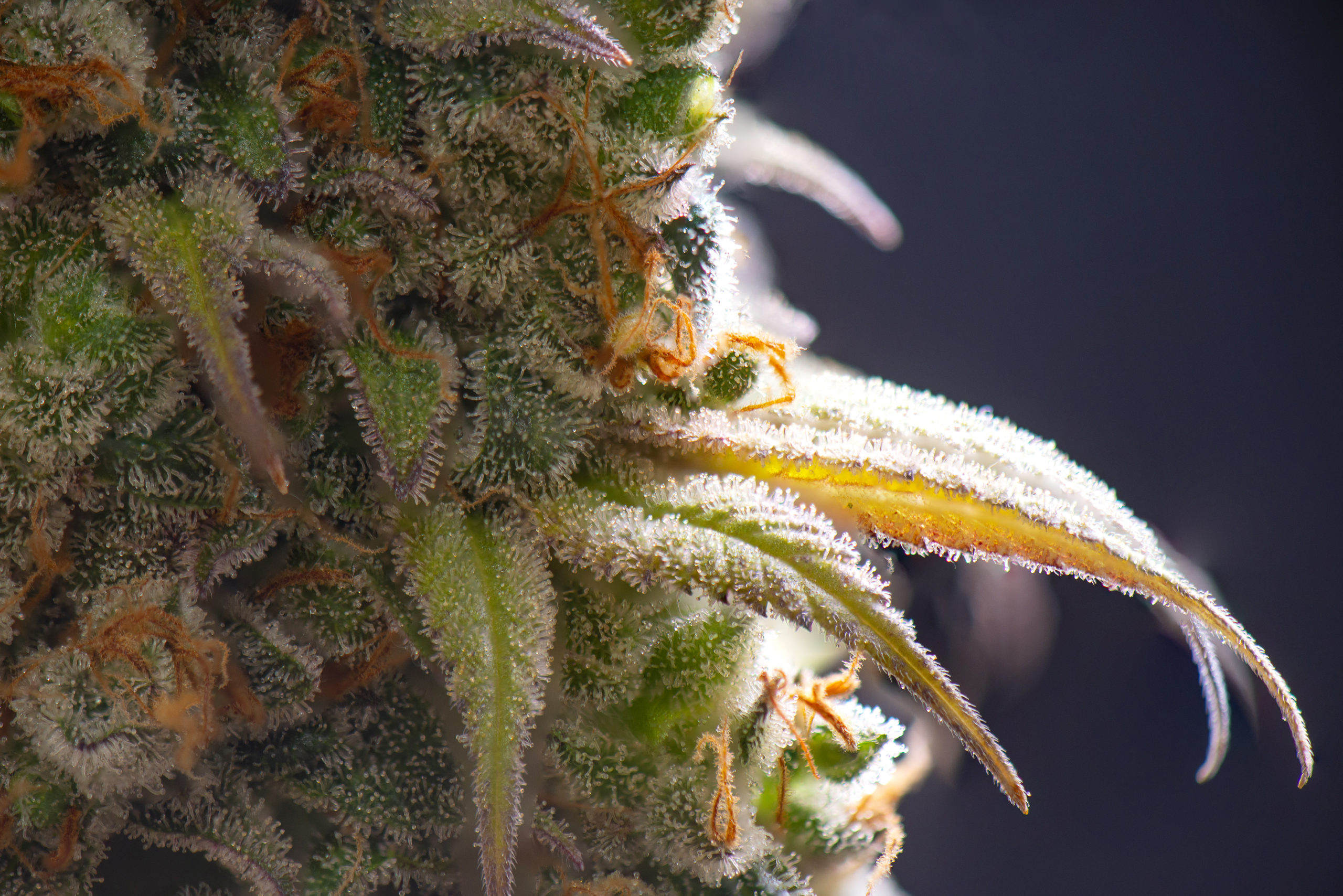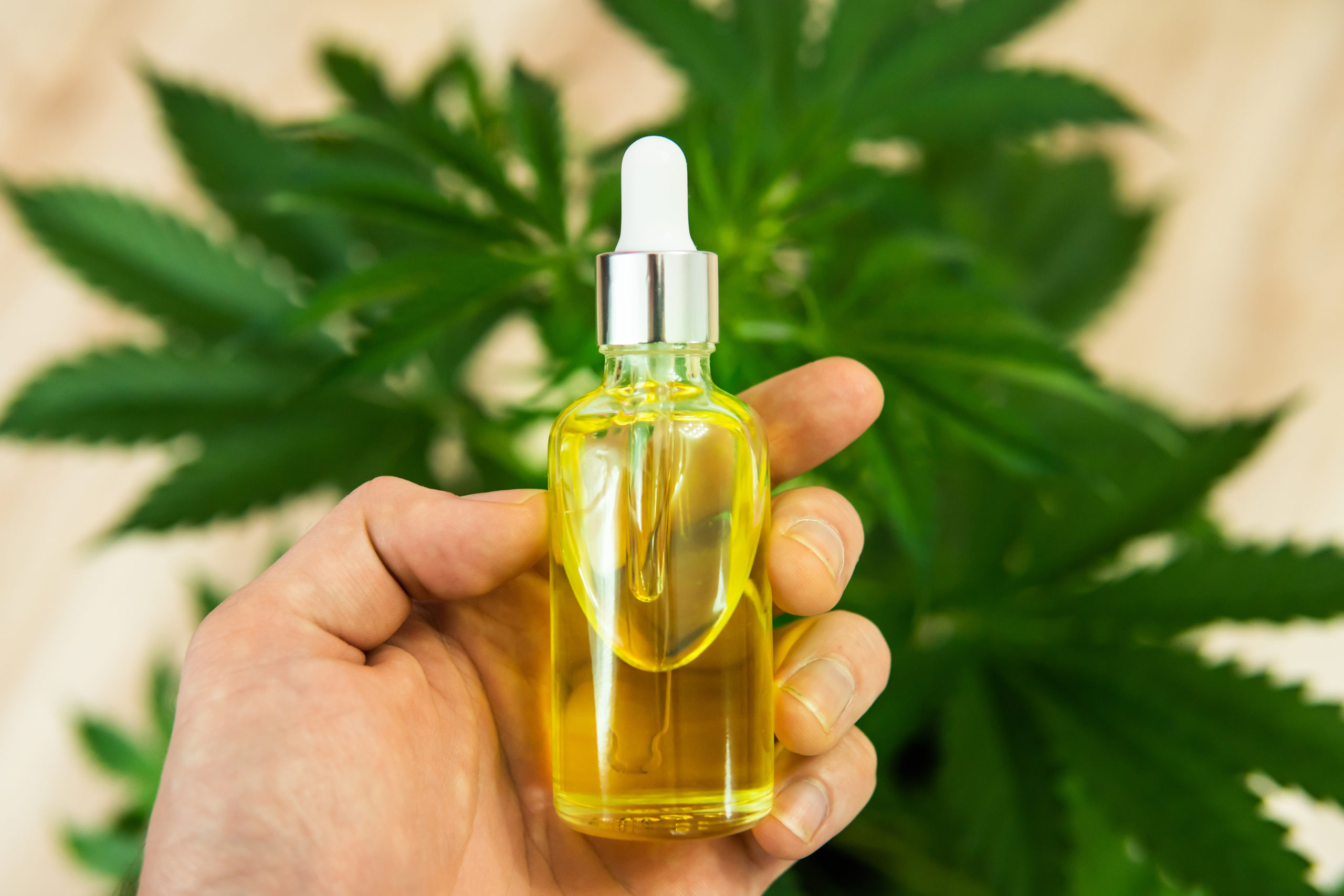-
- Market Research
- |
- CBD Near Me
- |
- Giveaways
- |
- Newsletter
- |
- Contact
- |
- Advertise
- |

Though the anti-inflammatory action of CBD has been solidly established for decades now, most research initiatives focused on CBD’s treatment of specific inflammatory conditions like psoriasis are in the earlier stages.
Still, early findings are showing promise when it comes to cannabidiol’s ability to treat psoriasis and similar inflammatory conditions. The short answer to the question, “Is CBD oil good for psoriasis?” is yes, but exploring the extent and nature of its effects on psoriasis requires a closer look at the research.
First, let’s break down what psoriasis is exactly, then we can explore the interaction between CBD oil and psoriasis, and finally, we will examine how you can best take advantage of CBD for psoriasis.
What Exactly Is Psoriasis?
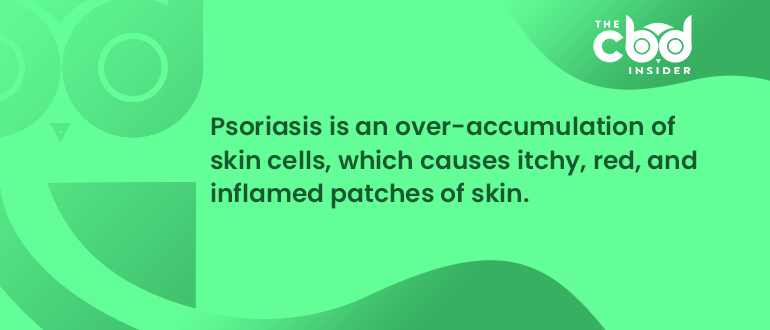
Psoriasis is a skin condition characterized by scaly, red and white plaques that appear most commonly on the larger joints and abdomen.
Normally, our skin cells slough off and replace themselves every thirty days or so.
In the case of psoriasis, this cellular process is greatly accelerated, only taking about three or four days to occur.
The result is an over-accumulation of skin cells, which manifests itself in those itchy and inflamed patches.
There are several types of psoriasis that affect different areas of the body, but the root mechanism is the same in each case.
While researchers have correlated many genetic and environmental factors to the onset of the condition and flare-up risk, as in this International Journal of Molecular Sciences academic review authored by Heidelberg University’s Department of Dermatology in Germany, a singular, definitive cause has yet to be identified.
In other words, we can track and diagnose this unwanted proliferation of skin cells, even going so far as to predict future flare-ups based on certain markers, but we still don’t know why the body suddenly takes this action.
Most clinical researchers believe psoriasis is an autoimmune disorder.
You don’t need to develop a cure or even establish the etiology (cause of disease), thankfully, to determine whether or not a substance like CBD can at least mitigate the symptoms of a condition like psoriasis.
Let’s see what the research has to say.
How CBD Affects Psoriasis
A study conducted by the University of Debrecen (Hungary) Department of Physiology and Department of Immunology faculty examining the role of cannabinoids in “cutaneous homeostasis,” (i.e., the cellular processes that maintain skin health) found that “both endogenous and phytocannabinoids can exert various biological effects in the skin, implicating cannabinoid signaling as a key contributor to cutaneous homeostasis” (emphasis added).
That’s a lot of information to digest at once, so let’s break down exactly what this finding means.
The above study referenced previously documented skin issues (premature skin aging, hair loss, and acne) that accompanied the use of synthetic cannabinoids like “K2” and “fake weed” as evidence that cannabinoids have a role in skin health.
In this case, the abundance and/or synthetic nature of the cannabinoids referenced in the study caused adverse reactions, implying that the inverse—a healthy amount of naturally occurring cannabinoids like CBD—is essential for skin health.
In other words, this finding helps to provide a groundwork for the exploration of CBD as a treatment for skin conditions like psoriasis.
However, it still doesn’t specifically answer the question, “Is CBD oil good for psoriasis?”
CBD Prevents Skin-Cell Buildup

Arguably the most conclusive statement in favor of the use of CBD for psoriasis, a study conducted by Nottingham University’s School of Biomedical Sciences found that cannabidiol and other “phytocannabinoids” used in the study “inhibit(s) keratinocyte proliferation, and therefore support(s) a potential role for cannabinoids in the treatment of psoriasis.”
A keratinocyte is a skin cell, named after its role in producing the protein keratin. As we already discussed, psoriasis is characterized by rampant, accelerated reproduction of said skin cells.
The first finding we discussed simply exposed that there was a relationship between cannabinoids and skin health, but thanks to this Nottingham University study, we now know at least one important role of CBD within this relationship: preventing the inflammatory process of unwanted skin-cell buildup.
CBD Has Immunity-Suppressing Properties
Psoriasis is more than just a simple and isolated issue involving only inflammation; if that were the case, it would be as easy to manage as an allergic reaction or a bug bite.
It’s the ongoing autoimmune component that separates psoriasis, an actual disease state, from temporary issues like contact dermatitis, etc.
As mentioned briefly, many clinicians and researchers agree that psoriasis is an autoimmune disease, or at least an inflammatory disease with autoimmune involvement.
This means that the immune system is mistakenly attacking its own skin cells as if they are disease-causing pathogens, hence the inflammation and rapid reproduction of cells.
For this reason, it’s not uncommon to see immunosuppressant drugs included in the typical psoriasis treatment plan.
An academic review from Mississippi State University describes how CBD also has immunosuppressant effects that directly target several of the immune cell types (T cells and microglial cells) involved with uncontrolled skin cell proliferation, effectively lowering this exaggerated immune response.
In other words, CBD acts as both a general anti-inflammatory and an immunosuppressant in certain cases of autoimmunity, meaning you might be able to use CBD oil for psoriasis to inhibit the disease on both fronts.
Interestingly, these inhibitory effects are suspected to occur outside the endocannabinoid system, which is the set of receptors that typically impart CBD’s benefits.
Creating Your CBD Treatment Plan
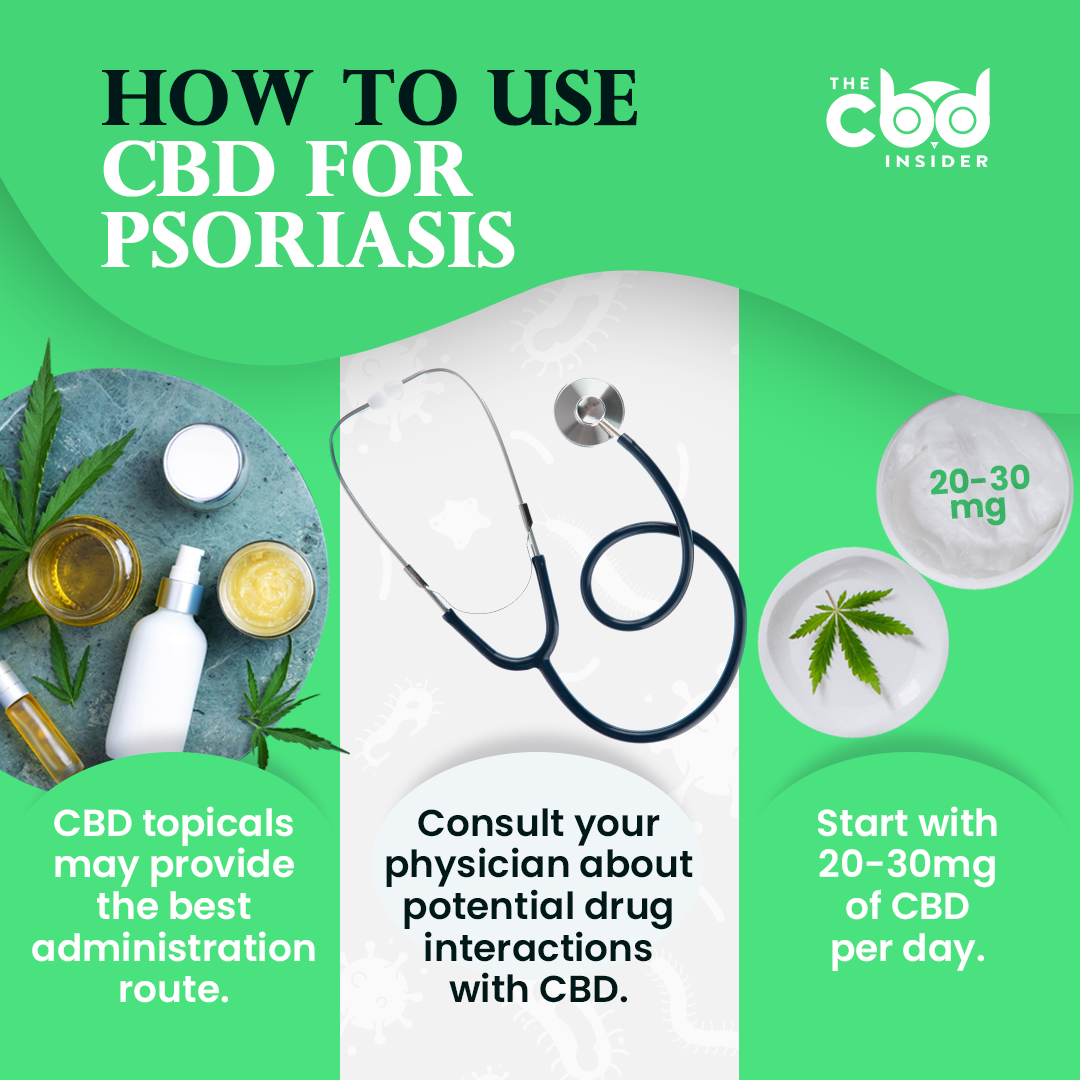
Research findings don’t always translate perfectly into actionable consumer guidelines, especially for people who are new to the product in question.
In the case of using CBD for psoriasis, as with almost every other scenario, the three biggest points to navigate for safe and effective treatment are type, dosage, and potential drug interactions.
Type
Every commonly used form of CBD, including tinctures, oils, gummies, and topical creams, has the potential to provide the anti-inflammatory and immunosuppressive effects described above.
The majority of clinicians and researchers using CBD for psoriasis tend to prefer topical CBD ointments because of the additional healing and hydrating effects offered by the other oils and vitamins usually included in topicals.
When thoroughly applied, topical CBD will outpace most other administration routes and, because you worked the oil and nutrients specifically into problem areas, it will have more potent local effects.
Dosage
In the Nottingham University study referenced above, CBD reportedly improved psoriasis in a concentration-dependent manner, meaning the relationship between dose size and treatment success was linear: more CBD, greater outcome.
CBD “overdosing” is extremely unlikely, given its non-intoxicating nature, but if you’ve never used it before, we always recommend starting with a small dose in the neighborhood of 20-30mg a day and building from there in consistent increments.
Always make sure to consult your particular product’s label so you can understand how much CBD you’re getting per x number of milliliters or edibles consumed, especially in the case of tinctures, which can vary widely in concentration.
It’s also advisable that you keep the rest of your routine unchanged, allow 2-3 days at the very least to assess results at each dose level, and then stop increasing or reducing when you’re satisfied with the results.
Potential Drug Interactions
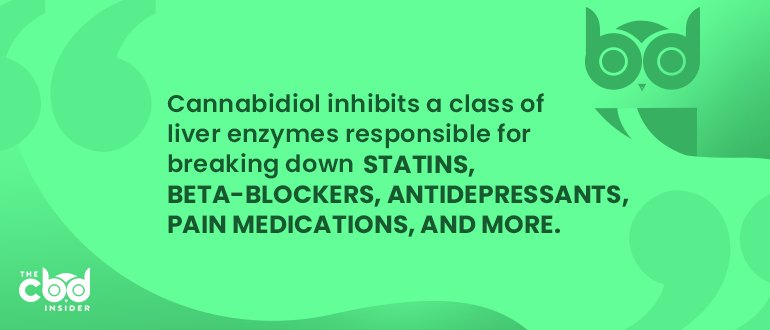
While CBD doesn’t have profoundly strong, “synergistic” effects, as when taking opiate painkillers with alcohol, it does interact with a vast field of commonly used drugs.
We encourage you to have a look at our guide about CBD drug interactions if you want to learn more about these effects, but to summarize, cannabidiol inhibits a class of liver enzymes responsible for breaking down statins, beta-blockers, antidepressants, pain medications, and more.
Fewer drug-metabolizing liver enzymes mean that other drugs taken while on a CBD-psoriasis regimen may have stronger, longer-lasting effects.
The Long Answer
Is CBD oil good for psoriasis?
Yes, but like any other effective supplement routine, it takes active effort on the part of the user to receive any benefits.
Researching the benefits and potential drawbacks is step one in this effort, and running your own trial with carefully measured dose adjustments and self-assessment will help you maximize effectiveness.


